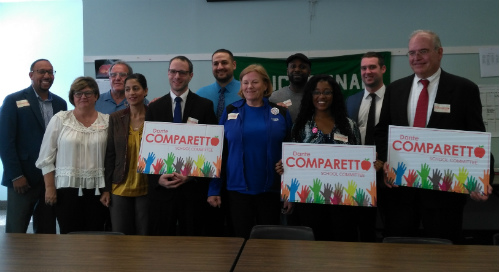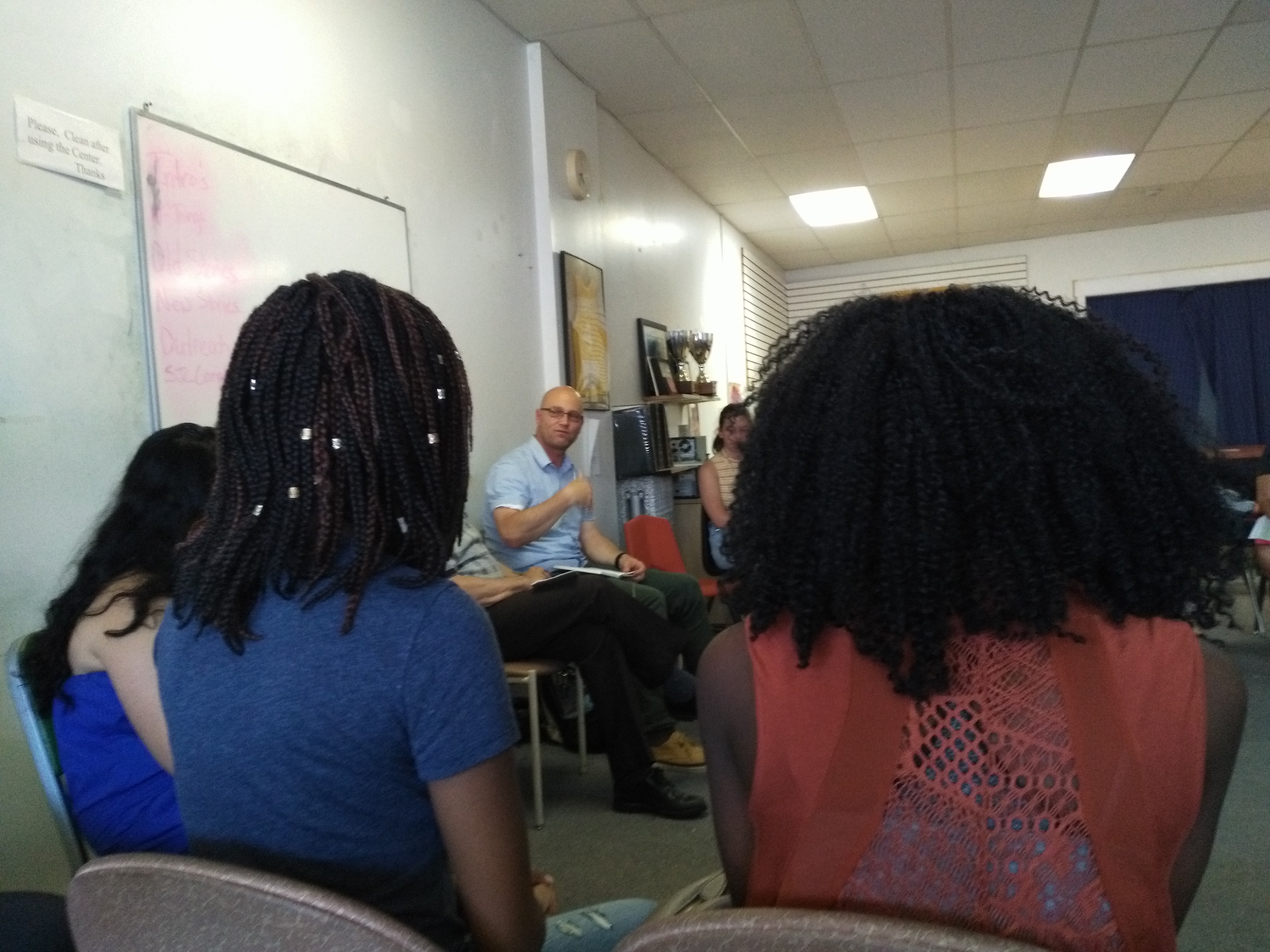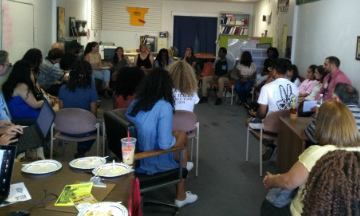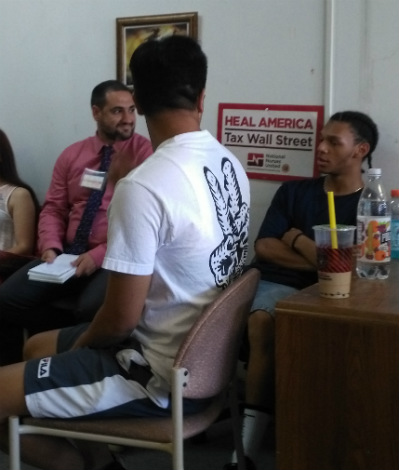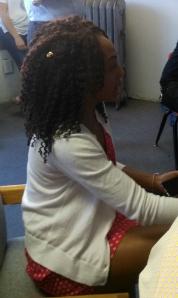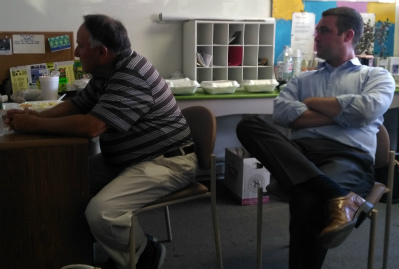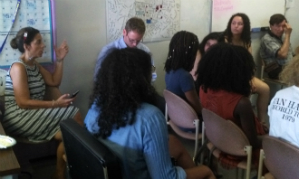WORCESTER, Mass. – Labor leaders, elected officials, and representatives of community organizations gathered at the Educational Association of Worcester’s headquarters this morning to announce their support for Dante Comparetto’s bid for a seat on the city’s school committee. Supporters highlighted argued his years of advocacy for Worcester families and support of working people’s rights make him the ideal candidate.
“He’s been an absolute staunch advocate for the educators in Worcester and the members of this union,” said EAW president Roger Nugent. “We are very pleased to unanimously endorse him.” The 2,800-member EAW represents Worcester’s teachers, many administrators, instructional assistants, bus drivers, and other school employees, and is a local of the National Education Association.
City Council member Candy Mero Carlson, chair of the Worcester Democratic City Committee spoke on behalf of the WDCC, saying, “I’m extremely pleased that Dante made a decision to run, because he is all about our kids today; he is all about our Worcester Public Schools.”
Carlson added, “I look forward to working with Dante on behalf of all of our kids in the Worcester Public Schools.”
It was clear that Comparetto has the backing of organized labor. Central Massachusetts AFL-CIO President Joe Carlson, Mary Colby of the Massachusetts Nurses Association, and Fred Taylor of Carpenters Local 107 attended, each representing their unions.
Taylor emphasized how well prepared Comparetto was to answer labor’s question. According to Taylor, the Carpenters’ endorsement committee “peppered” Comparetto with questions, and he answered them all adeptly.
Colby stated that Comparetto would be an ally and an advocate for students’ health. “An important issue that nurses hold dearly is to ensure that the nurses to have a partner in education,” she said. “Our goal is to ensure that safety is maintained in the Worcester Public Schools. I think Dante is the person to do that.” She added that she believed Dante would fight to make sure that each school has a nurse.
Shanique Spalding, of the Planned Parenthood Action Fund, which also endorsed Comparetto, picked up on the issue of students’ health and wellbeing. “Now more than ever we need to work together on holistic solutions that recognize the connection between health care access, student achievement, and breaking the cycles of poverty,” she said. “When young people are taught how to make healthy decisions, build safe relationships, and focus on their futures, they thrive and we all win. We can make a better and brighter future by making sure that Dante wins this election cycle.”
City councilor Sarai Rivera praised Compratto, saying he’s someone “who comes from a perspective of community.” Rivera, herself a product of the public school system and a parent of public school children said Comparetto understands that “good schools equal good neighborhoods.”
Another council member, Khrystian King, praised Comparetto for fighting to ensure adequate funding for education, specifically through the “No on 2” campaign in 2016. “I’ve seen the work that he’s put in leading up to the elections, I’ve seen the work that he continues to put in on the campaign trail, and I’m quite confident that that work ethic will continue upon election,” King said. “Dante is a champion for Worcester.”
Support also came from the state legislative delegation, with Rep. Dan Donahue speaking on behalf of most of the city’s delegation to the House of Representatives in Boston. “He’s someone who gets it,” Donahue said of Comparetto. “I know that he’s going to have the ability through all his previous experience to really not just be a voice on the school committee, but to be an advocate and an organizer.”
Other state legislators endorsing Comparetto include Reps. Mary Keefe, John Mahoney, and Jim O’Day.
Paul DePalo, chair of Greater Worcester Our Revolution, said that “Dante understands that building a world class school system means addressing the whole child, and that means engaging with the community and being responsive to the community. I know for sure that he’s going to be a standing advocate for students and teachers.”
In accepting these endorsements, Comparetto said he was “honored.” The endorsements “reflect the more than 15 years of work that I have dedicated to our community. For my entire adult life, I have been serving the Worcester community, and bringing people together to solve problems. I have founded nonprofits that improve our city, served our city on boards and commissions, and started my own small business.”
Comparetto noted that the schools face challenges, saying, “I want to bring [my] experiences to the school committee in order to bring our community together to make our school district the best in the state.”
Image: Left to right: Khrystian King, Candy Mero-Carlson, Joe Carlson, Sarai Rivera, Paul DePalo, Dante Comparetto, Mary Colby, Fred Taylor, Shanique Spalding, Rep. Dan Donahue, Roger Nugent.
